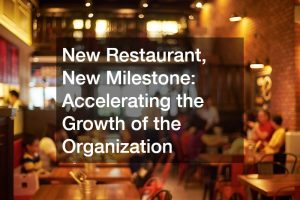The realities of the modern workplace are constantly changing. What we learn in college may not even be sufficient to equip us for work. Even as young adults, we have to keep on learning to stay competitive.
However, many people don’t feel satisfied merely by holding down a job that pays well. They want to do meaningful work. And many jobs don’t offer that opportunity.
In the long term, performing work that’s perceived to hold no meaning causes a loss of motivation. It makes us feel stressed, disillusioned, and worn out. Well-being is negatively impacted, and the work itself is unsustainable.
But finding meaningful work is easier said than done. It adds yet another layer of difficulty to the challenge of finding a good job. You may not be able to land in such a position at the beginning of your career. Rather than give up, though, you can be strategic about how you search for a job that rewards you with meaning as well as compensation.
Defining meaning in work
Any job can have multiple layers of meaning. However, most jobs stop at the level of providing ‘decent work’: a steady and reliable income. To go above and beyond this minimum requirement, a job must also be a source of self-esteem and serve to strengthen individuals and communities.
Occupations that focus on craftsmanship are a good source of meaningful work. Craft implies a sense of ethos. The craftsman embraces work for its own sake and strives to improve by understanding and to perfect a process. They are autonomous, building their skills out of natural curiosity and practicing techniques resulting from deep engagement with their craft.
Caring labor is also a source of meaning in work. Workers whose job involves taking care of children, the elderly, or people with illness or disability will have no complaints about the meaning of their work. They may not always find pleasure in every task or every hour spent on the job but derive a sense of purpose that keeps them going.
Not all caring labor is done on an individual basis. Many people whose work is focused on serving communities or tackling large-scale social problems also find meaning in what they do.

The obstacle of management
Thus, meaningful work involves giving employees some degree of craft and care in their tasks. If that’s all it takes, you’d think it would be easy for more employers to provide such. Companies prize employee engagement, after all. So why don’t more jobs exist that satisfy this need?
The answer lies in the establishment of management hierarchies and their relentless push for efficiency. Ever since the early days of the Industrial Age, business leaders have focused on improving productivity and profits.
The craftsman’s autonomy was seen as an inefficient obstacle to this goal. Caring labor outside of the medical profession wasn’t valued and went unpaid, often delegated to women.
Even with the modern push for workplace equality and a renewed emphasis on the value of craftsmanship, not much has changed. Most managers continue to relieve workers of decision-making. Machines are used to simplify decisions and tasks, while management handles higher-level functions. The bulk of care continues to go unpaid and disproportionately handled by women.
Strategic career capital
The degradation of work is a system issue, and there’s little any individual can do to reform this system. But by understanding the obstacles to finding work that’s both decent and meaningful, you can build your career strategically towards that goal.
To do so, you have to amass what’s known as ‘career capital.’ This entails having a skill set that’s rare and valuable. It gives you the leverage you need to hold a job while also having autonomy from management and the freedom to apply yourself in service to others.
Career capital may come from being extremely specialized in a skill. Or it can be achieved through a unique combination of skills. For example, social workers can differentiate themselves by training in mental health consultancy. It expands their range of options, allowing them to find work to compensate them for providing meaningful care.
Other than skills, career capital also includes connections and credentials. Employers often use these to evaluate candidates and gauge their personal fit for a meaningful position.
Finally, you may need to achieve some level of financial security. This will allow you to maneuver into jobs that may pay less initially but serve as the stepping-stones you’ll need to take your career in the direction you desire.
It won’t be easy to find meaningful work. But with a strategic approach towards investing in yourself and intentionally building your career, you can find a job that satisfies you on the most important level.







